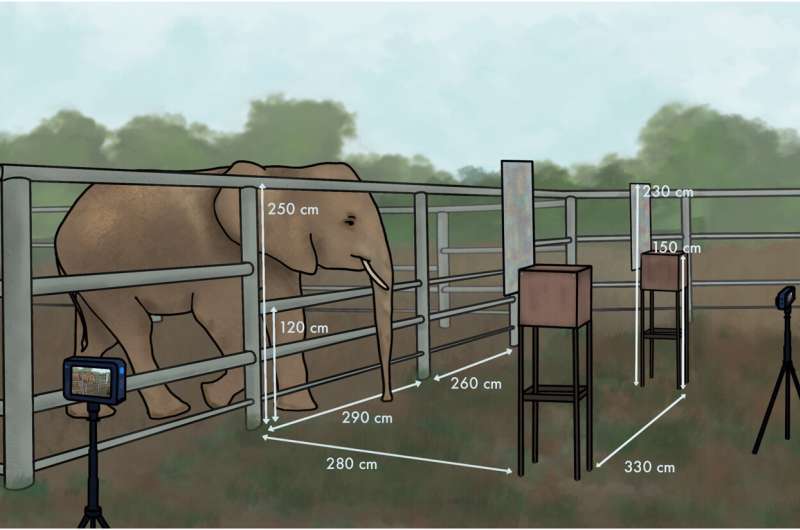Elephants are known for their remarkable memory, but a recent study suggests their social memory extends beyond their own species. Researchers found that African savanna elephants can recognize the scent of their former zookeepers, even after many years of separation. This fascinating discovery highlights the deep bond that can form between these intelligent animals and their human caregivers. Elephants are truly remarkable creatures, and this study offers valuable insights into their complex social and cognitive abilities.

Elephants’ Exceptional Long-Term Memory
The notion that ‘an elephant never forgets’ has long been a popular saying, and it seems there is truth to this idea. Numerous studies have shown that elephants possess an exceptional long-term memory, allowing them to remember the locations of waterholes they visited decades ago and even recognize the faces of fellow elephants they haven’t seen in years.
Now, a new study published in the journal Zoo Biology suggests that this remarkable memory extends to their interactions with humans as well. Researchers from Kiel University in Germany conducted an experiment with two female African savanna elephants, Bibi and Panya, who had been transferred to a different zoo 13 years earlier. The team enlisted the help of the elephants’ former zookeepers from the Berlin Zoo, asking them to wear a t-shirt for eight hours, which was then used as a scent stimulus in the experiment.
Detecting Familiar Scents: Elephants’ Remarkable Sense of Smell
In the experiment, the researchers set up two racks outside the elephants’ enclosure, one displaying a stimulus from a former keeper (such as the worn t-shirt or a portrait photo) and the other displaying a stimulus from an unknown person. The elephants were able to see both racks but could not reach them with their trunks.
The team then observed the elephants’ behavior, analyzing how often and for how long they extended their trunks towards the racks. The hypothesis was that if the stimulus seemed familiar to the elephant, it would show greater interest and try to interact with it more. And that’s exactly what the researchers found – but only when the stimulus was the t-shirt worn by the former keeper.
‘Our results are a clear indication that elephants can at least remember the scent of their former keepers, even decades later,’ said Professor Christine Böhmer, who led the study. ‘This suggests that they are pretty important to the animals, and a stable relationship with their human caregivers can potentially have a very positive effect on the well-being of zoo elephants.’
Implications for Elephant Welfare in Zoos
The findings of this study have significant implications for the way we approach the care and management of elephants in captivity. If these intelligent animals can indeed remember and recognize their former zookeepers, even after many years, it highlights the importance of fostering strong, positive relationships between the elephants and their human caregivers.
This knowledge can help zoos and wildlife sanctuaries improve the overall well-being of their elephant populations by prioritizing the continuity of caregiver-elephant relationships and ensuring that the animals receive the high level of individual attention and care they require. By understanding the depth of the elephants’ social memory and their ability to form lasting bonds with humans, we can work to create more enriching and fulfilling environments for these magnificent creatures in captivity.
As the study’s authors note, further research with a larger sample size is needed to confirm and expand upon these findings. But the insights gained from this initial study offer a valuable glimpse into the complex social and cognitive abilities of elephants, reminding us of the importance of respecting and preserving these magnificent animals.
